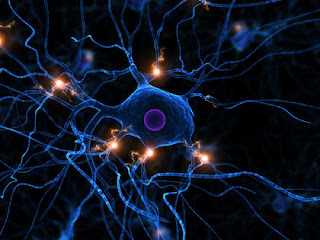How uncontrolled inflammation leads to brain cell loss
Recently, those researchers conducted a study that investigated the mechanisms that regulate inflammation in the brain, what happens when they stop working properly, and why that may happen. The cannabinoid receptor type 1 (CB1), they say, plays an important role in processing the "rush" sensation produced by cannabis. It also appears to be involved in the regulation of inflammatory reactions in the brain. If CB1 receptors fail to respond, this contributes to the development of chronic inflammation, which can eventually lead to the loss of brain cells. So reports the study paper, now published in the journal Frontiers in Molecular Neuroscience.
Brake signals for inflammation
The researchers say that the immune response in the brain is mounted via microglial cells, a type of specialized immune cell found in the central nervous system, which includes the brain and the spinal chord. Microglia work by responding to bacteria and clearing out malfunctioning nerve cells. At the same time, they send signals to recruit other types of immune cells and trigger inflammation when needed. However, if unregulated, an inflammatory reaction in the brain can misguidedly attack and damage healthy brain tissue."We know that so-called endocannabinoids play an important role in this," explains study co-author Dr Andras Bilkei-Gorzo. "[Endocannabinoids]," he goes on, "are messenger substances produced by the body that acts as a kind of brake signal: [t]hey prevent the inflammatory activity of the glial cells."These messenger substances act by binding to certain receptors, one of which is CB1. A second one is a cannabinoid receptor type 2 (CB2). Microglial cells have low levels of CB2, and even less, or no, CB1, the researchers explain. Still, these immune cells will react to endocannabinoids despite this lack.




Comments
Post a Comment